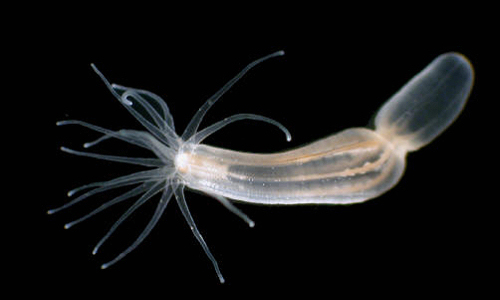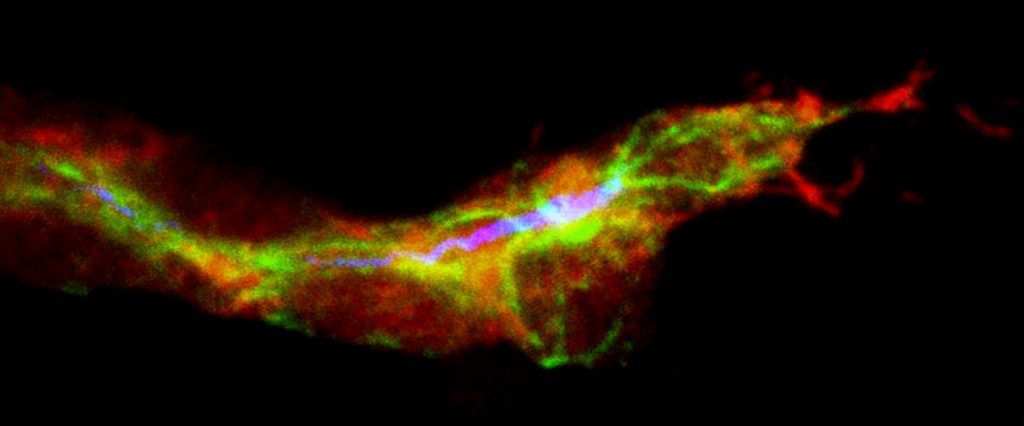A research group has revealed how a seemingly simple animal is able to produce nerve cells throughout its entire body. A study published in the journal Development shows that the stem cells that a sea anemone uses to generate its nervous system are more similar to those of humans than expected.
Photo Credit: The Smithsonian Environmental Research Center
Nerve cells are found everywhere in our bodies, in our skin, in our guts, in our brains. But all these nerve cells were generated from only a small area of tissue when we were embryos.
In this tissue, neural stem cells give rise to nerve cells through a complicated process of cell division and stepwise specialization.
The nerve cells or their progenitor cells then move through the embryo to their final destination where they provide us with the ability to sense our environment, move our bodies and play chess.
Few of the stem cells that generate nerve cells when we are embryos, are still alive once we are adults, and it is therefore difficult for us to replace damaged nerve cells, for instance after an injury or a stroke.
Other animals are much better at replacing nerve cells, and among the champions of this are sea anemones – animals that do not have a brain and are only very distantly related to us.
A new study by Gemma Richards and Fabian Rentzsch has now shown that one of these animals, the starlet sea anemone Nematostella vectensis, uses stem cells that are surprisingly similar to ours to generate their nerve cells.
“Embryos of the sea anemone can generate nerve cells throughout their entire body and they can completely regenerate their nervous system as adults”, says postdoc Gemma Richards, the first author of the study.
Previously it was thought that this ability was based on a special type of stem cells in these animals, stem cells that can generate all kinds of cells, not only nerve cells.
“We have now been able to genetically label a specific group of cells in the sea anemone, and with this technique we can see that they build their nervous system from stem cells that exclusively generate nerve cells, resembling the way humans do this”, Richards explains.
The gene that has been used to label these neural stem cells is important for nerve cell formation in humans as well.
The Rentzsch group has now started to compare this process in more detail between sea anemones and other animals.
“There is no straight connection to nervous system regeneration in humans, but the question as to why these animals can do it so much better than we can, is of course in the back of our heads”, says Rentzsch.
Story Source:
The above story is based on materials provided by Uni Research, Andreas R. Graven.





